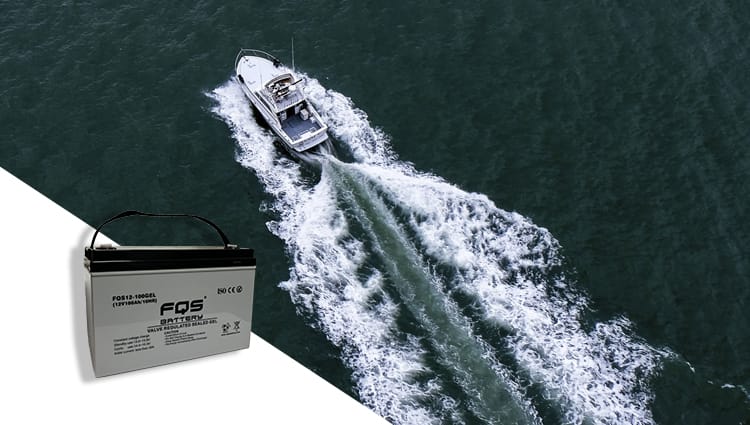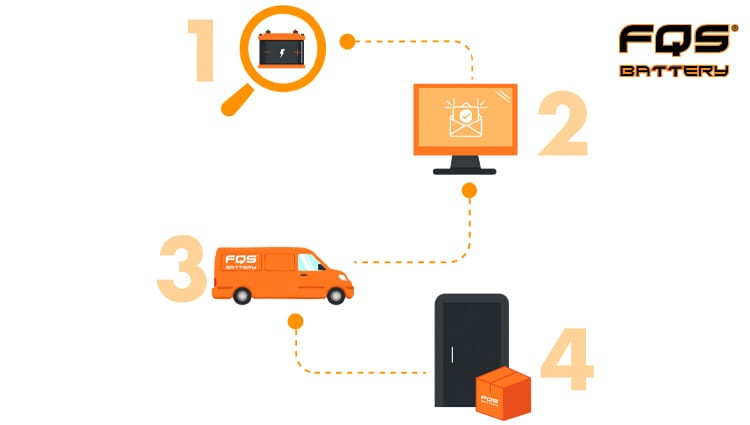Deep cycling a battery refers to a process in which the battery discharges to a very low capacity before being recharged back to full capacity. This term primarily applies to rechargeable batteries such as lead-acid, nickel-cadmium (NiCd), nickel-metal hydride (NiMH), and some lithium-ion batteries.
This process is common in batteries specifically designed for applications requiring deeper discharges, such as deep-cycle batteries used in recreational vehicles, solar systems, golf carts, boats, backup power systems, among others.
Deep cycling can have a impact on service life and battery performance. Deep-cycle batteries are designed to withstand repeated deep discharge and recharge cycles, allowing them to last longer and maintain consistent performance throughout their lifespan.

From FQS Battery We remind you that it's important to keep in mind that not all batteries are designed for deep cycling. Car starter batteries, for example, are designed to provide quick starting power but aren't meant to be fully discharged regularly. Improper use of these types of batteries in deep cycling applications can significantly reduce their lifespan.
Therefore, when considering deep cycling a battery, it is important to select a battery specifically designed for that application and follow the manufacturer's recommendations regarding depth of discharge and expected cycle life.
In more specific terms:
- Deep discharge: This is the process in which a battery is discharged to a very low level of its full capacity, often below 20%. Some batteries designed for deep cycling can withstand discharges down to 80% of their rated capacity without significant damage.
- Full recharge: It is the process in which, after a deep discharge, the battery is completely recharged until it reaches its full capacity.
Deep cycling applications
Batteries designed for deep cycling are common in applications that require a sustained power source over an extended period, such as:
- Solar energy systems
- Golf carts
- Electric vehicles
- Power Backup Systems (UPS)
- Caravans and motorhomes
- Boats and RVs

Battery technology
Deep-cycle batteries can be offered in a variety of technologies depending on the application type, operating conditions, and performance requirements.
From FQS Battery We market the following lines:
- Flooded Free Acid
- Tubular
- AGM
- AGM Carbon
- GEL
- Heavy Traction
- LifePO4
Advantages and disadvantages
- Sustained Energy Capacity: They provide a constant and sustained source of energy for extended periods.
- Durability: They are designed to withstand multiple deep discharge cycles without rapid degradation.
Disadvantages
- Weight and Size: They are often heavier and bulkier compared to batteries designed for shallower discharges.
- Initial Cost: They tend to be more expensive due to their robust construction and ability to withstand repeated deep cycles.
- Maintenance: Some deep-cycle batteries, such as lead-acid batteries, require regular maintenance, such as checking and adding distilled water.
To take into account
Deep cycling can help prevent "memory" in certain batteries, such as NiCd batteries, where the battery's capacity is reduced if it is not fully discharged before being recharged. However, not all batteries are suitable for deep cycling. For example, lithium-ion batteries generally should not be deeply discharged regularly, as this can reduce their lifespan.
In short, deep cycling is a useful and necessary method for certain applications and battery types, ensuring optimal performance and extending the life of batteries designed for this purpose.
For any questions or queries, our specialists are always available. Contact us and since FQS Battery We will give you the best solutions.


